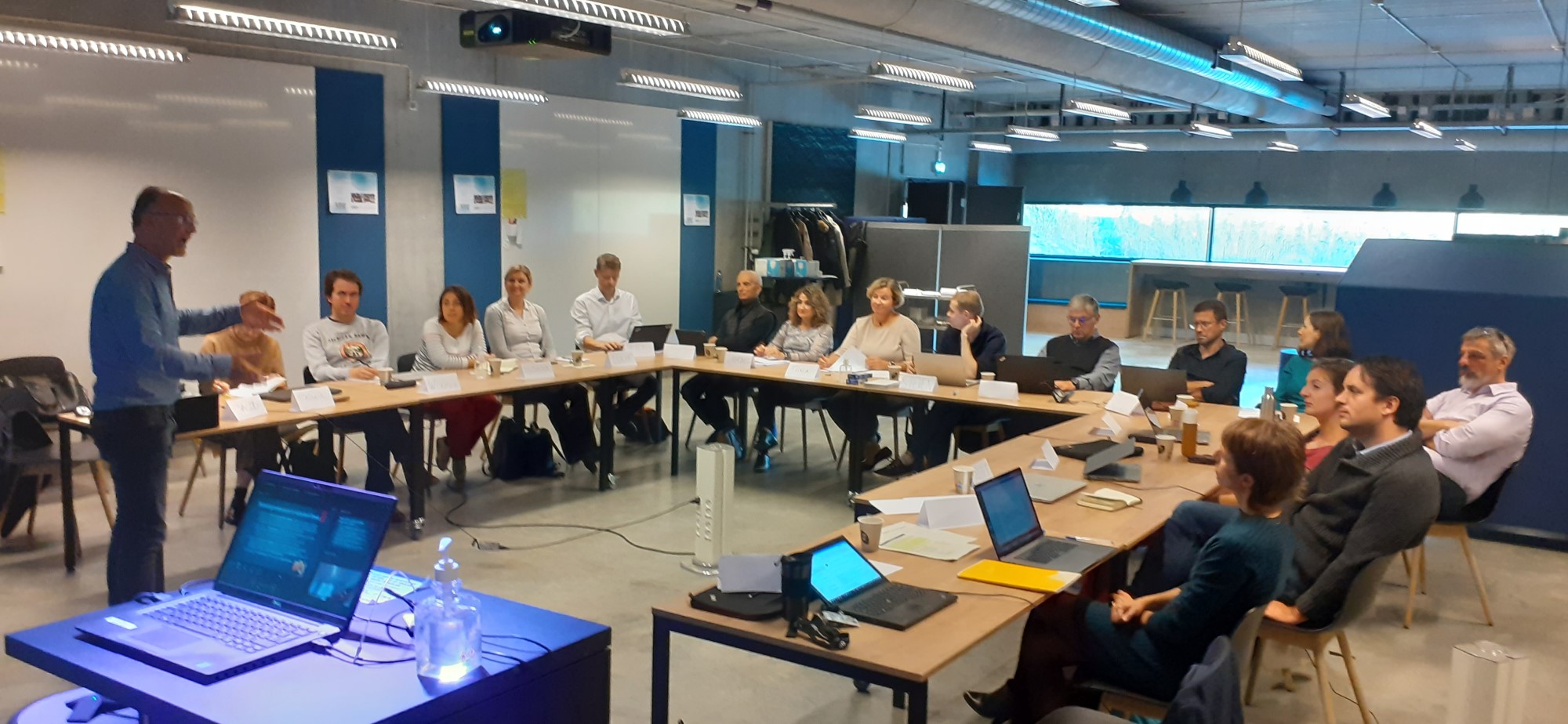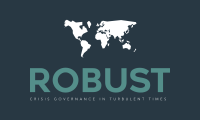
ROBUST Kicks Off
In search of robust governance
On October 6th – 7th, 2022, the ROBUST consortium met at Roskilde University to kick off the ROBUST project. Coordinator Jacob Torfing outlined the basic assumptions of the project, which are that public governance responds robustly to moments of crisis and turbulence may be the key to societies moving forward to achieve sustainable, equitable, and prosperous solutions to the challenges that lie ahead. The public sector’s leaders cannot assume calm waters for the plans they make. Quite the contrary, we should all asume that plans will be disrupted and good intentions challenged by rising turbulence.
Exploring complex conditions
The work package leaders each dove into the complexities ahead for the project in exploring the conditions that hinder or help robustness in crisis governance. Tiziana Capano (University of Turin) presented research options for identifying how multi-level governance impacts local level crisis governance. Tiina Randma-Liiv (Tallinn Technical University) and Koen Verhoest (University of Antwerp) discussed the complex ways in which hybridity in governance, democracy and law may allow for increased agility in governance responses to turbulence. Wouter van Dooren (University of Antwerp) outlined some key assumptions about how societal intelligence may be studied and how we may expect it to condition policy options as well as citizen responses.
Learning from real-world cases
Scott Douglas (Utrecht University) presented the project’s citizen-centric approach in which “networked localities” (i.e., towns and city districts with their links to regional, national, European, and international governance) become the learning ground for understand the net effects of the many layers of governance that shape citizens’ experience during a crisis. On-the-ground qualitative case studies will be combined with Qualiative Comparative Analysis (QCA) methodology to identify the unique narrative dimensions of citizens’ experiences as well as the configurations of governance conditions that lead to robust crisis governance in the eyes of European citizens.
Embracing European diversity
The ROBUST consortium is fortunate to have participants from all corners of Europe to help the project take into account the real differences between European member states. Vicente Martínez (University of Zaragosa) stressed the importance for European projects to acknowledge the different traditions for bureaucratic organization and state-civil society interaction, which shape governance at national and sub-national levels. Likewise, György Hajnal (Corvines University) underscored the need to be mindful of the differences in how public governors interact with (social) science and what counts as relevant knowledge.
A learning hub for robust crisis governance
This European diversity demands an open-ended and learning-oriented approach to social scientific research. Alexander Sokolovic (European Public Health Alliance) and Rasmus Øjvind Nielsen (Roskilde University) therefore outlined plans for dialogue and communication with stakeholders and the public, along with the ambition of creating a European Learning Hub for robust crisis governance to inform and support actors involved in European crisis governance at all levels
Share:
Related Posts

ROBUST Kicks Off
On October 6th – 7th, 2022, the ROBUST consortium met at Roskilde University to kick off the ROBUST project.
